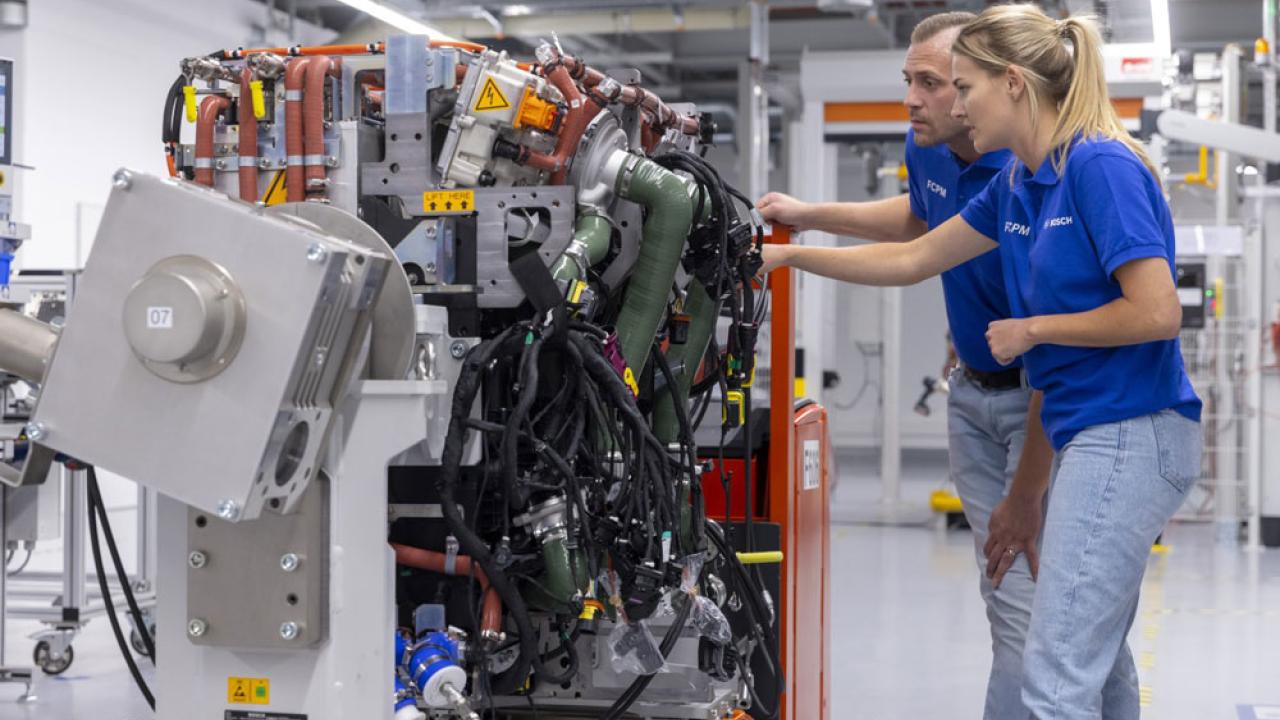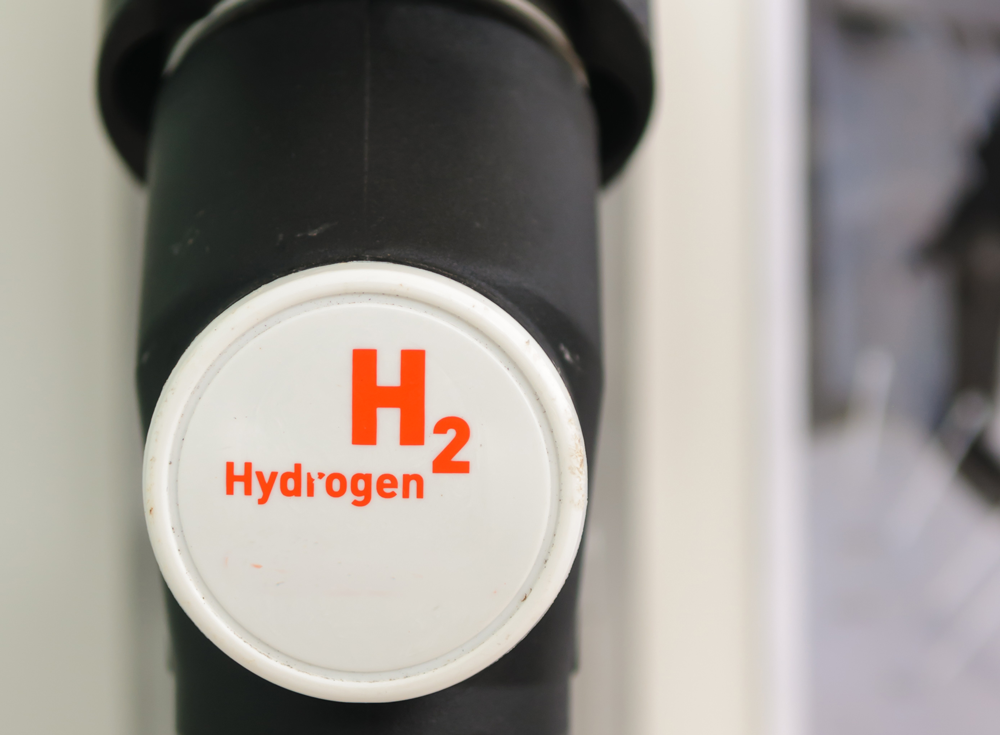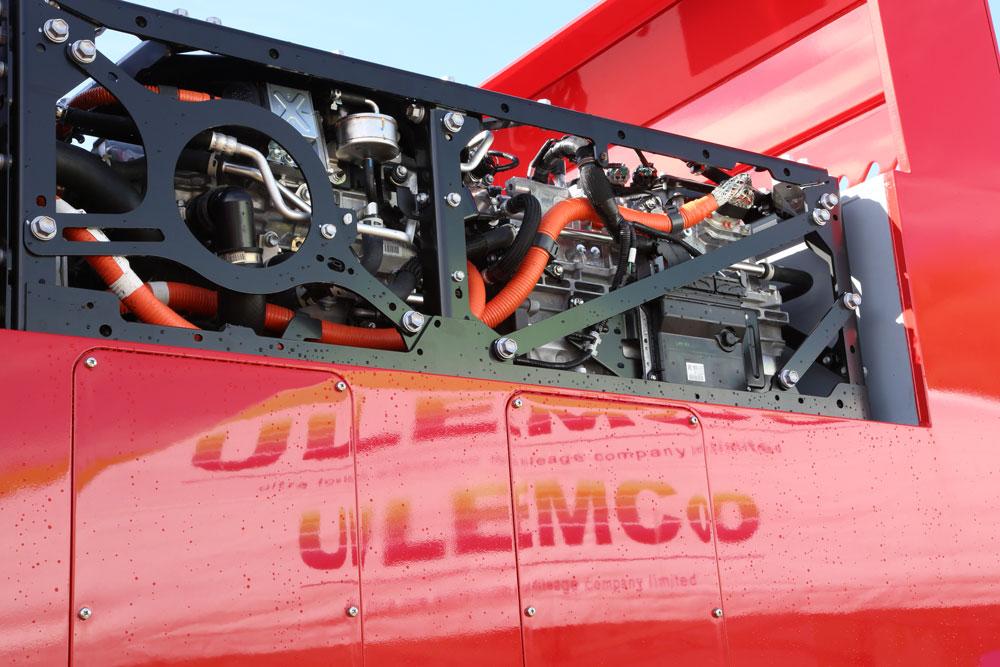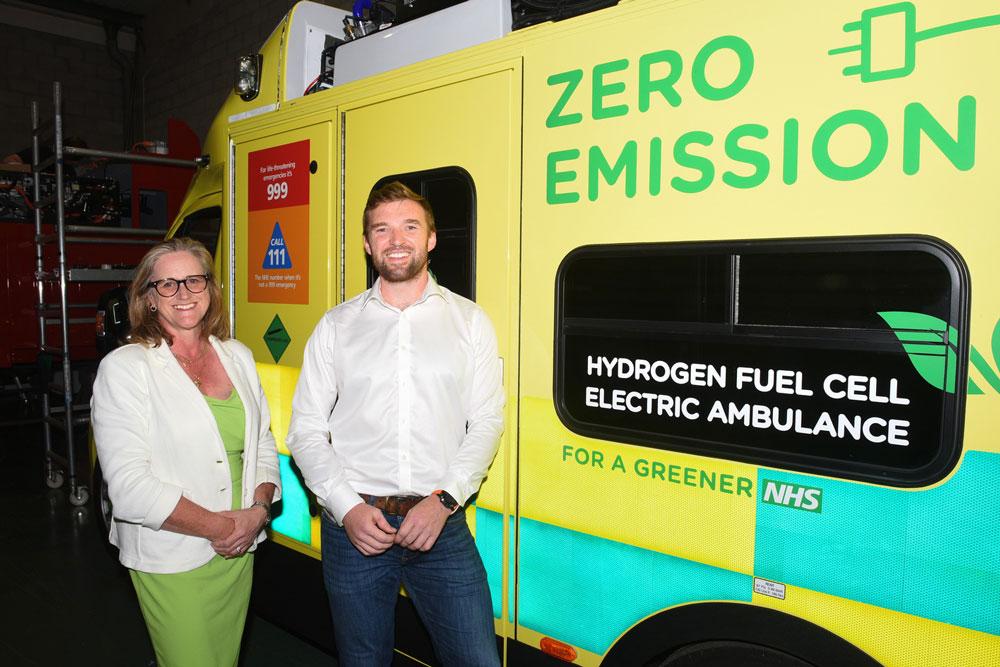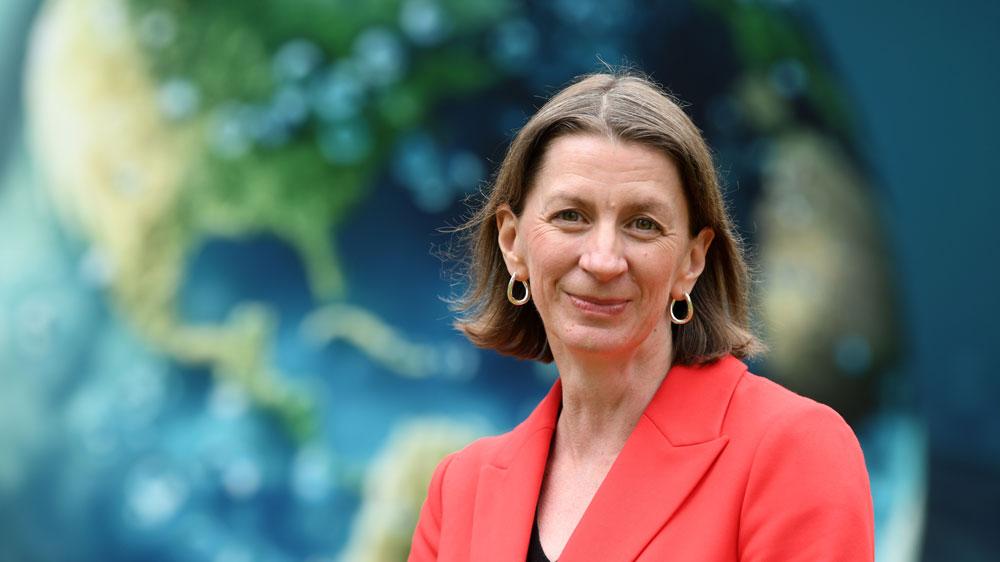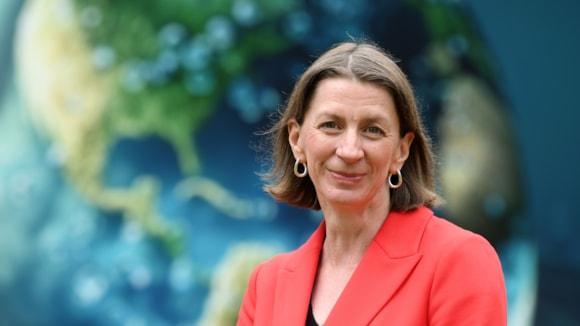Manufacturing of the Fuel Cell Power Module (FCPM) in the Feuerbach plant
Bosch has now begun volume production of its fuel-cell power module in Germany, which will be tested by Nikola Corporation in its Class 8 hydrogen fuel cell electric truck that is scheduled to enter the North American market in the third quarter of 2023.
Between 2021 and 2026, Bosch will have invested a total of nearly 2.5 billion euros in the development and manufacturing of its H2 technologies, and there are more than 3,000 people at Bosch working on hydrogen technologies, more than half of them in Europe.
But Markus Heyn, member of the Bosch board of management and chairman of Bosch Mobility, says more support is needed from German and European policymakers. Markus said: “First, we have to step up the pace of hydrogen production in the EU. Second, global supply chains have to be set up, and third, hydrogen has to be used in all sectors of the economy.” As a fourth point, he stressed the importance of quickly setting up infrastructure for distributing hydrogen in Europe.
At the start of 2023, Bosch started constructing prototypes for electrolysis using proton exchange membranes – in other words, the reverse of the energy conversion method used in mobile fuel cells. Starting in the fall, the company intends to make 1.25-megawatt prototypes available for pilot applications, and is on track to start volume production in 2025. Bosch is exploring several options for the use of hydrogen. Stationary solid-oxide fuel cells can be used for the distributed supply of power and heat.
In a pilot project at the hospital in Erkelenz, near Cologne in Germany, Bosch wants to use this technology to achieve overall efficiency of 90 percent. The micropower plant there will initially run on natural gas, but can be converted to green hydrogen. Apart from the fuel-cell powertrain, Bosch is also working on the hydrogen engine, developing systems for both port and direct injection of hydrogen. This solution is particularly suitable for heavy vehicles on long hauls with especially heavy loads.
The H2 engine is expected to be launched starting in 2024. Even now, Bosch has four orders for production projects from all the major economic regions, and expects six-figure unit volumes by 2030. In this field as well, Bosch is dynamically taking the hydrogen economy forward.
Markus Heyn said: “Bosch is one of the very few companies that are capable of mass producing technology as complex as fuel-cell stacks. We don’t just have the required systems expertise, but also the capability of quickly scaling up new developments to mass production Production of the fuel-cell power module is not only starting in Feuerbach, but also in Chongqing, China. The components it requires will come from the Wuxi plant.
“Bosch is the first company to produce these systems in both China and Germany,” Hartung said. In addition, Bosch is also planning to manufacture stacks for mobile applications in its U.S. plant in Anderson, South Carolina. Worldwide, the company expects that, by 2030, one in five new trucks weighing six tons or more will feature a fuel-cell powertrain.

